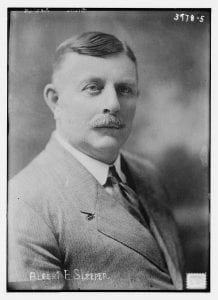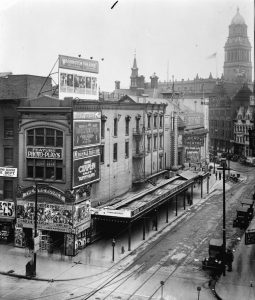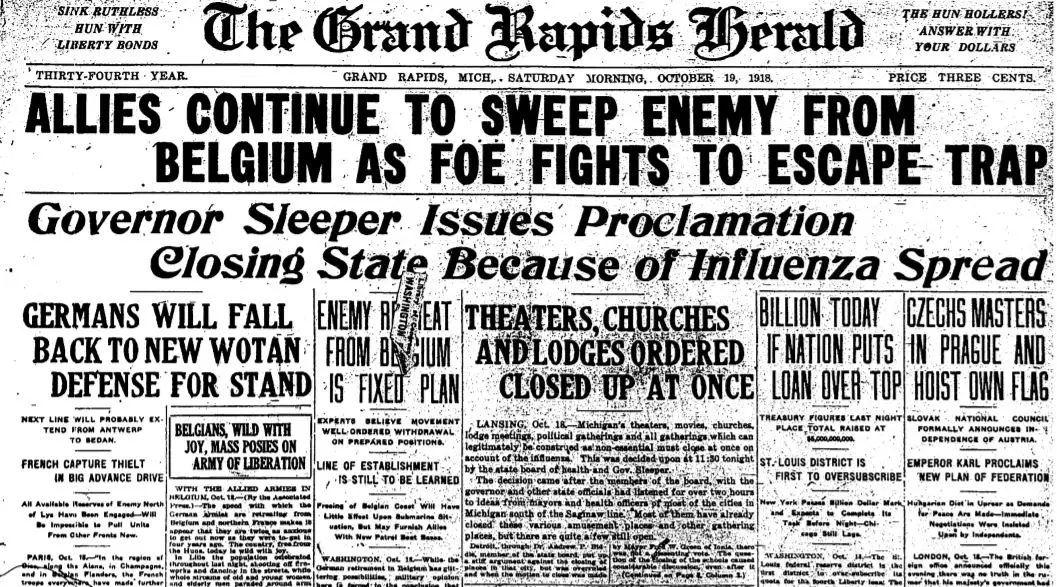Michigan Governor Gretchen Whitmer’s Executive Order to “Stay Home, Stay Safe” was not unexpected. The Michigan Pandemic due to the Coronavirus outbreak was forcing many states into a total lockdown with Shelter in Place orders. As of March 26, 2020, the state of Michigan recorded 2,294 cases of coronavirus and 43 deaths. Her order falls short of total Michigan Shutdown. However, despite the dramatic rise in cases due to the epidemic, her action has been taken by some state representatives as an overreach of her powers and perhaps even unconstitutional.

The Ionia Sentinel-Standard reports that State Rep. Thomas Albert, R-Lowell contends the governor went too far with the executive order mandating the closure of all non-essential businesses in Michigan. Albert holds that the order is putting the Michigan economy at risk.
“The governor’s order is an overreaction. While I acknowledge we are largely in uncharted territory, the governor’s continued use of executive orders raises constitutional questions.”
State Rep. Thomas Albert, R-Lowell
This concern is shared by other Michigan lawmakers such as State Rep. Beau LaFave, R- Iron Mountain released a statement on March 16th in response to Gov. Gretchen Whitmer’s executive order of a partial Michigan coronavirus shutdown of bars, restaurants and other small businesses in Michigan until March 31, 2020.
“These businesses, many small and family-owned, are the backbone of our state and provide employment opportunities for many people in our communities. It doesn’t matter whether it’s a bar, coffee shop or fitness center, the Constitution outlines the private property rights of every business entity.
State Rep. Beau LaFave
However, Whitmer is not the first governor to shut down Michigan during a Pandemic
102-year years ago, Michigan governor Albert Sleeper, a Republican from the Thumb Region, was faced with a similar health catastrophe. The Spanish Flu was a global pandemic that started the spring of 1918. The virus was raging in Michigan. Every county had reported cases. On one day alone, October 18th, 1918 the state reported over 1800 new cases and 79 deaths. The epidemic had raced across Michigan’s Upper Peninsula and every theater and church north of the straits was closed. There was fear that the virus would continue its trek south into the more heavily populated region south of Saginaw. Calls were made for Federal assistance.
Sleeper was seeing an odd patchwork of local response to the epidemic. Ann Arbor and Hastings had closed their schools while in Flint and Detroit no actions were being taken. In Petoskey, passengers had to get clearance from the medical examiner to board a train.
However, just like today, there were some who felt that the impact of a Michigan coronavirus shutdown on business would hurt the economy. They feared such it would would “paralyze Detroit”. We found an informative article on a University of Michigan site that is dedicated to covering Michigan’s 1918 influenza outbreak. The Grand Rapids Herald covered governor Sleepers process for calling the state shut down during the evening of Thursday, October 18th, 1918. It’s an interesting parallel to today.
amzn_assoc_tracking_id = “thumbwind-20”;
amzn_assoc_ad_mode = “manual”;
amzn_assoc_ad_type = “smart”;
amzn_assoc_marketplace = “amazon”;
amzn_assoc_region = “US”;
amzn_assoc_design = “enhanced_links”;
amzn_assoc_asins = “B087HBYNS9”;
amzn_assoc_placement = “adunit”;
amzn_assoc_linkid = “de6ab208cf0983e0bbd34e4994aaffba”;
Governor Sleeper Issues Proclamation – Closing State Because of Influenza Spread – Grand Rapids Herald

Theaters, Churches and Lodges Ordered Closed Up at Once
Michigan’s theaters, movies, churches, lodge meetings, political gatherings and all gatherings which can be legitimately be construed as non-essential must close at once on account of influenza. This was decided upon at 11:30 tonight by the state board of health and Gov. Sleeper.
The decision came after the members of the board, with the governor and other state officials, listened for over two hours to ideas from mayors and health officers of most of the cities in Michigan south of the Saginaw line. Most of them have already closed these various amusement places and other gathering places, but there are quite a few still open.
Detroit, through Dr. Andrew Biddle, member of the state board, put up a stiff argument against the closing of places in that city but was overruled. When the motion to close was made by Mayor Ford W. Green of Ionia, there was not a dissenting vote.
The question of the closing of schools caused considerable discussion even after it was decided to close the theaters and churches and that question was left to the community themselves. Some cities have their schools under excellent supervision and others have not. In those where the supervision is incomplete, the state board will help out if desired.
The testimony of the representatives of the various cities varied almost as widely as their geographic location. Those cities which are not suffering seriously from the Spanish flu as yet requested that the question of closing be left to each locality. On the other hand, cities that were already closed insisted through their representatives that one regret they had was that they not closed sooner.
Dr. Biddle’s plea for a non-closing order as far as Detroit was concerned was based entirely upon the size of the city. “If you close,” said he, ‘you should close everything. If you close your theaters, you should close the churches. If you close the churches you should close all the places where people congregate. If you close all of these, you must close your streetcars and if you shut the streetcars you will paralyze the city of Detroit.”

We think in Detroit it is unwise to close. We base that opinion on figures we have received from cities of our size where the closing order has been in effect. None of them can show where the closing has done any good. We have made use of the theaters as a means of education and propose to so with the churches, but we think it would be unwise to close.
Dr. C.C. Siemons the health officer of Grand Rapids spoke in the same strain. “His city,” he said, “had but a few cases and was perfectly able to take care of the conditions as they stand now. If the time came when the epidemic got beyond their control, he would close everything up too.”
Other cities gave testimony the other way. Dr. William DeKleine of Flint where everybody is now wearing masks said frankly, he was sorry he did not close everything up before he did. “We can reduce the chances of the infection by reducing the possibilities of the people to congregate,” he said.
The official order of the governor is as follows:
“Whereas it is a matter of common knowledge that the state of Michigan, in common with either state of the Union, is facing the serious and imminent danger of epidemic from a disease commonly known as Spanish Influenza, which is prevalent in practically all communities throughout the state; and
“Whereas, said disease is highly contagious and spread by personal contact with the persons infected therewith, thus creating the necessity of avoiding insofar as is possible all gatherings and meetings whatsoever.,
“Now therefore by virtue of the authority vested in me as governor of the state, I hereby direct that all churches, theaters, moving pictures, shows, pool rooms, and dance halls shall be and remain closed until further proclamation and that all unnecessary public meetings or gatherings shall be avoided. All health officers and health boards in the various cities, villages, and townships of the state shall take such action as is required by law to carry out and ensure the careful performance of the terms and conditions hereof.
“In witness whereof, I have hereunto set my hand and caused the great seal of the state to be affixed at Lansing, Mich., this 19th day of October 1918.
Governor Albert Sleeper
amzn_assoc_tracking_id = “thumbwind-20”;
amzn_assoc_ad_mode = “manual”;
amzn_assoc_ad_type = “smart”;
amzn_assoc_marketplace = “amazon”;
amzn_assoc_region = “US”;
amzn_assoc_design = “enhanced_links”;
amzn_assoc_asins = “0143036491”;
amzn_assoc_placement = “adunit”;
amzn_assoc_linkid = “c86a3de3ae62d837f511ebb11c66e464”;
Related Reading of Michigan Coronavirus Shutdown

Will Remote Workers Flock To Their Cottages To Sit Out The Michigan Coronavirus? – Will northern Michigan see a spike in cottages opening up early this year as a hide-a-way during the Michigan coronavirus shutdown? Many of the major companies in the Detroit area, including General Motors, Ford, and Fiat Chrysler have told their employees to work at home.

Michigan’s Experience With Pandemics – Infographic – Over the past 100 years, the United States and Michigan have been hit with four influenza pandemics. Of all of these, the 1918 outbreak was the most serious in terms of mortality and the two-year duration of the epidemic. The Michigan Coronavirus is similar.




